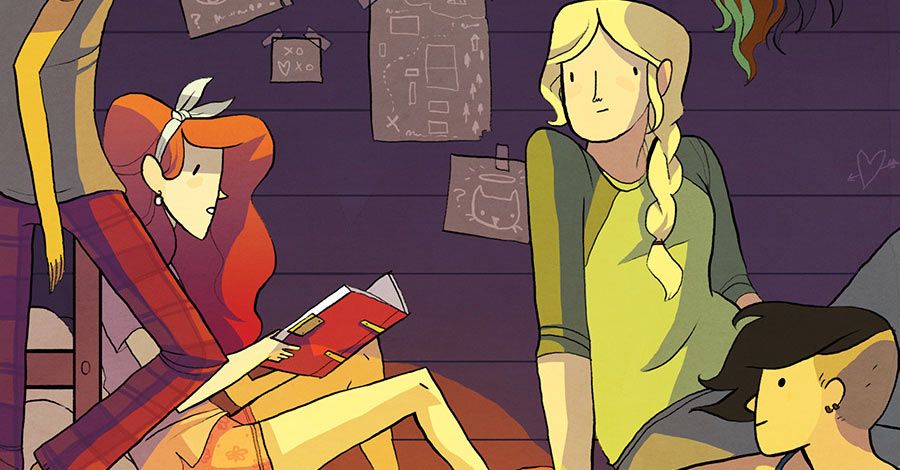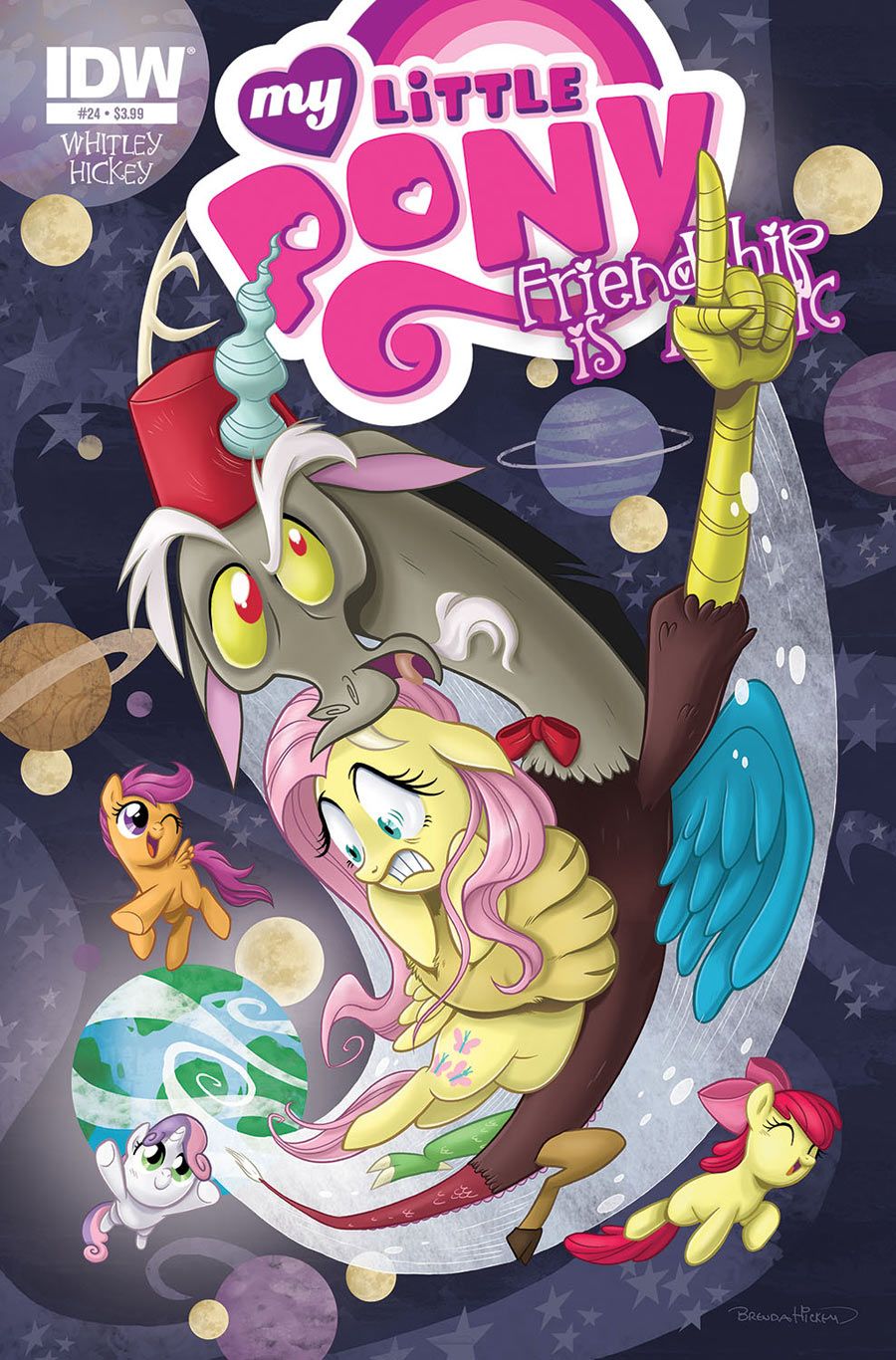Creators of all-ages comics gathered at Comic-Con International in San Diego for the appropriately titled "All-Ages Comics Have Arrived" panel. Moderated by "Lumberjanes" co-creator and KaBOOM! Editor Shannon Watters, the panel featured a diverse group of creators: Dave Roman ("Astronaut Academy," "Teen Boat!"), Gene Luen Yang ("American Born Chinese," "Boxers and Saints"), David Petersen ("Mouse Guard"), and Ian McGinty ("Bravest Warriors," "Adventure Time: Candy Capers").
Watters started the panel with a tough question regarding the reputation of all-ages comics: "Why do you think that people get so defensive about something not just being for kids, or not being for kids at all?" Roman speculated that the defensiveness was not restricted to the world of comics, or even a particular age group. "Even a ten-year-old kid will be like, 'I don't watch Nick Jr.! That's for babies!'" He also said that publishers push books into specific categories for marketing purposes, which makes it difficult to establish an all-ages title as truly accessible for all audiences.
Yang added that he found writing for a younger audience more challenging than writing for adults, and stories aimed at younger readers should not be stigmatized. "I think there's this idea that kids' comics aren't as sophisticated as stories that are meant for adults, maybe because kids are seen as incomplete adults, but in some ways it's actually the exact opposite," he said. "When you are trying to tell a story to a kid, you can't assume that there's all of this back knowledge and all of this life experience. So you have to build the story from the ground up for them. That's a very difficult thing to do well."
Roman found that children and teens tend to be better readers for his material. While adult reviewers sometimes stumble over his flashbacks or panel layouts, kids have no trouble interpreting his comics' complex structures. "If you ever want to read the most complex stories, with the most characters and the most story arcs, read a book that a six-year-old kid has done," McGinty declared. "They are the most detailed things that I have ever seen in my entire life. They know every single, minute detail of what they put on the page, which is more than I can say for most adults."
Watters asked the panelists what changes they would like to see in the marketplace for kids' comics. McGinty responded that he would like to see more comics that don't cater specifically to girls or boys. "There's nothing that makes me angrier than people that come up to the table and ask, 'Is this for boys or girls?'" he said. Petersen pointed out that the "My Little Pony" craze has unintentionally broken down many of the social barriers to boys reading material that has been marketed primarily to girls.
Petersen said that he wanted to see more comics in general, and more diversity in those comics. He cited the Comics Code Authority, formed in 1954, as a large reason for the domination of superheroes in the comics world. "Let's just get more diversity, so that it's up to the audience what they want to read, instead of being marketed to," he said. Yang said that he wanted to see more nonfiction books, as well as a "Super Best Friends Forever" book for his daughters to read.
"Access is key to all of this. The fact that libraries now have graphic novel sections has been part of what has pushed diversity in comics," Roman added. He said Scholastic Book Fairs have had a huge impact on expanding the readership for "Smile," the autobiographical coming-of-age comic created by Raina Telgemeier. The panelists also praised teachers and librarians for embracing comics and getting them into the hands of readers who would never have found their way into a comic book store.
The panel was optimistic for the future of all-ages comics. McGinty praised "Lumberjanes" for disrupting expectations about the potential audience for all-ages books, and speculated that publishers would be following in those footsteps with a new wave of all-ages titles. "From a marketing standpoint, it makes a lot of sense," Petersen said. "You're literally not excluding anyone."


